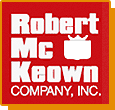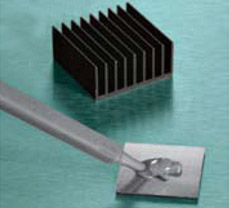-
Electronics Potting & Encapsulation
potting-encapsulants
-
Silicone Potting/Encapsulants
Silicones and Electronics
Long-term, reliable protection of sensitive circuits and components is becoming more important in many of today’s delicate and demanding electronic applications. Silicones function as durable dielectric insulation, as barriers against environmental contaminants and as stress-relieving shock and vibration absorbers over a wide temperature and humidity range. In addition to sustaining their physical and electrical properties over a broad range of operating conditions, silicones are resistant to ozone and ultraviolet degradation, have good chemical stability and are available in a variety of useful forms as conformal coatings, encapsulants and adhesives. Dow’s broad range of general purpose and specialty products offers you a choice of materials for your application needs.
Dow silicone encapsulants are supplied as two-part liquid component kits comprised of:
Mix Ratio Components (by weight or volume) (as supplied)
1:1 Part A/Part B
10:1 Base/Curing agent
When liquid components are thoroughly mixed, the mixture cures to a flexible elastomer, which is suited for the protection of electrical/electronic applications.
Dow silicone encapsulants cure without exotherm at a constant rate regardless of sectional thickness or degree of confinement.
Dow silicone elastomers require no post cure and can be placed in service immediately following the completion of the cure schedule with an operating temperature range of -45 to 200 °C (-49 to 392 °F). Select materials have been classified by Underwriters Laboratories and/or meet military specifications.
Standard silicone encapsulants require a surface treatment with a primer in addition to good cleaning for adhesion while primerless silicone encapsulants require only good cleaning. -
Silicone Potting/Encapsulant Gels
Gels are a special class of encapsulants that cure to an extremely soft material. They are used to provide high levels of stress relief to sensitive circuitry. Gels perform many important functions in electronics. Their major job is to protect electronic assemblies and components from adverse environments by:
- Functioning as dielectric insulation
- Protecting the circuit from moisture and other contaminants
- Relieving mechanical and thermal stress on components
-
Epoxy Encapsulant Product
Ensuring that electronics products function as they are designed to is just one piece of the materials solution Henkel delivers. Protecting printed circuit boards and electronic assemblies from thermal cycling and adverse environmental conditions is the other critical component for product durability and reliability. Under the leading Hysol® and Stycast™ brands, Henkel offers several PCB protection products to minimize external product stress and maximize performance. Our portfolio of conformal coatings keeps moisture, humidity and other adverse conditions from deteriorating printed circuit boards used in harsh marine, automotive, aerospace and consumer electronics applications. Henkel also strives to keep environmental consciousness at the forefront of all our product development efforts, which is why we have moved toward solvent-free, low-VOC materials and processes.
Henkel’s potting and encapsulation compounds protect PCBs and electrical devices by enhancing mechanical strength, offering electrical insulation, and protecting against vibration and shock. -
Epoxy Henkel Emerson & Cuming Catalysts
Selecting the best catalyst
A catalyst determines many of the final properties of a STYCAST system. It's selection is as important as that of the resin as it has a significant influence on final cured hardness, mixed viscosity, temperature capabilities and physical properties.
Understanding viscosity
Viscosity is the measure of the internal resistance of friction when a material moves against itself. It is typically measured using a rotating spindle instrument (viscometer). The amount of force required to turn the spindle (torque) at a selected speed (rpm) is measured. A simple calculation converts this internal resistance to viscosity. Thicker materials equates to higher torque values, hence, higher viscosities.
Robert McKeown offers a variety of adhesive and sealant products for a wide range of commercial and industrial applications. Our silicone epoxy adhesives and sealants, in particular, are ideal for applications such as:
FEATURES AND USES OF ELECTRONICS SEALANTS AND ADHESIVES
Providing ultimate reliability and longevity, our electronics adhesives and sealants can be used to form bonds to many different surfaces and substrates, including:
- Ceramics
- Metals
- Glass
- Filled plastics
These specialized solutions eliminate the need for mechanical fastening and clamping while allowing for optimal ease of processing. Reliable and efficient in temperatures ranging from -45 °C to 200 °C, our electronics adhesives and sealants provide excellent dielectric insulation.
Most silicone formulations are solventless, eliminating the need for special storage, ventilation, or handling. And because many of our electronics adhesives and solvents are reworkable, they offer great flexibility and allow for easier module repair.
Electronics adhesives and sealants are frequently used in: automotive, communications, industrial, and energy industries, as well as consumer devices.
Extremely versatile, these adhesives can be used for:
- Sealing lids and housing grooves
- Cushioning or stabilizing fragile components
- Affixing components such as capacitors and coils to circuit boards
- Adhering module lids and baseplates
- Gasketing
SILICONE ADHESIVES
One of the most popular types of electronics adhesives, silicone adhesives provide excellent flexibility and high heat resistance, making them ideal for electrical, automotive, aerospace, and construction industries. There are several varieties of silicone adhesives available, including:
- Two-component systems that require a curing agent
- One-component systems that cure through air moisture
- UV or EB radiation curing adhesives
- Pressure-sensitive versions that adhere to surfaces with little pressure
RTV sealants (room-temperature vulcanizing) begin to cure as soon as they’re exposed to moisture in the air, so they must be used quickly. Pressure-sensitive sealants offer a permanent tackiness. UV- or radiation-cured sealants, on the other hand, require UV light to cure, while thermoset silicone sealants require heat to cure. Although not as strong as other sealants or adhesives, electrical silicone sealants remain flexible even when fully dried or cured. Various types of silicone sealants serve as ideal solutions for high-heat applications like engine gaskets.
In electronics fabrication, silicone adhesive sealants are often used for fixing parts on circuit boards, LCD module assembly, general sealing, and component protection. Specific formulations differ depending on intended use and can be customized to allow for enhanced thermal conductivity, superior protection of metal electrodes, and faster cure times. These sealants are available in chemical-, heat-, mildew-, and oil-resistant formulations to meet a wide range of application needs.
Industrial silicone epoxy is used for:
- General-purpose fixture sealing of tubs
- Windows, ductwork
- Gaskets
- General-purpose bonding
- Sealing
THERMAL SEALANTS
High temperatures often present problems for conventional adhesive materials and can affect printed circuit boards and assemblies. At Robert McKeown, we offer the highest-level special adhesive grades of thermal sealants, which allow for enhanced thermal conductivity. Both low-viscosity liquids and non-slump formations are available in two-cure chemistries.
We also offer one-part moisture-cure grades, which use room-temperature processing to cut back on equipment needs. After cure, the materials form strong but flexible bonds, which protect from mechanical stress and vibration. Both one- and two-part heat-cure solutions accelerate processing and support high throughput production.
Heat resistant silicone adhesives are extremely versatile materials and dispense easily at room temperature, but can also cure quickly at any thickness level at temperatures as low as 90°C. Efficacy and functionality are improved when higher temperatures accelerate cure times.
CHEMICAL RESISTANT ADHESIVES
Chemical resistant silicone adhesives are commonly used in:
- Chemical processing plants
- Chemical piping and tanks
- Medical devices
These adhesives can reliably protect against a wide range of chemicals and harsh materials, including acid, alcohol, and fuel. Depending on specific application requirements, they can also provide resistance against solvents, bases, sterilization, and water.
EPOXY BASED ADHESIVES
Epoxy based adhesives are created by mixing a resin and a hardener. Curing is initiated when the resin is mixed with a certain catalyst. The covalent bonds resulting from this combination determine the rigidity and strength of the epoxy sealant.
Epoxy adhesives can reliably adhere to a variety of materials and are ideal for applications demanding chemical resistance, high strength, and low stress. Thermally conductive, microelectronic-grade, general-purpose, high-temperature and chemical resistant epoxy adhesives are available as both one- and two-part solutions. Epoxy adhesive and sealants allow for room temperature, thermal, or UV-curing capabilities.




